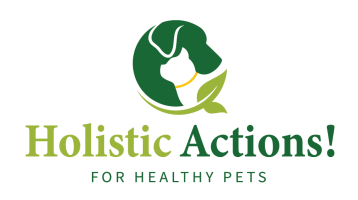- Joined
- Apr 15, 2022
- Messages
- 42
Subject: Seeking Comprehensive Treatment Strategy for Ventilator-Induced Phrenic Nerve Dysfunction
Dear Fellow Veterinarians,
I am reaching out to this community for guidance regarding my dog Shelton, who is experiencing complex respiratory complications following prolonged ventilation and surgical interventions.
Case Background:
Shelton has pre-existing genetic heart disease and genetic cervical vertebrae deformities that contributed to mild respiratory symptoms prior to recent medical interventions. His condition significantly worsened following:
• 46 hours of mechanical ventilation
• 79 hours with tracheostomy tube placement
• Elective soft palate surgery (performed to prevent palatal airway obstruction)
Current Clinical Presentation:
• Labored exhalation that worsens with certain anatomical positioning
• Inspiratory dyspnea consistent with phrenic nerve impairment
• Restrictive breathing pattern due to compromised diaphragmatic function
• Compensatory recruitment of accessory respiratory muscles
• Symptoms appear to improve somewhat with exercise
Diagnostic Notes:
• No tumors or obstructions detected in the diaphragm
• Suspected phrenic nerve dysfunction secondary to ventilator use and positioning during cervical procedures
• The combination of his pre-existing cervical abnormalities and necessary life-saving interventions created vulnerability during treatment
Seeking Input On:
I am looking for a comprehensive, multimodal treatment approach and would greatly appreciate your experiences with:
1. Conventional therapies:
• Electrostimulation protocols for phrenic nerve rehabilitation
• Physical therapy and targeted respiratory exercises
• Deep infrared light therapy applications
2. Complementary approaches:
• Therapeutic massage techniques
• Homeopathic interventions
• Herbal supplementation protocols
• Whole food concentrate nutritional support
Questions for the Forum:
• Has anyone encountered similar post-ventilator phrenic nerve complications?
• What rehabilitation protocols have shown success in your practice?
• Are there specific diagnostic tests you would recommend to better assess nerve function?
• What is the typical prognosis for this type of iatrogenic nerve dysfunction?
Any insights, case experiences, or treatment recommendations would be immensely appreciated. Shelton’s case is complex, and I believe a collaborative approach drawing from various therapeutic modalities may offer the best outcome.
Thank you for your time and expertise.
Best regards, Michael
 MIRACLE UPDATE
MIRACLE UPDATE 
Our sweet Shelton just defied every medical prediction! After major throat surgery with serious complications requiring a ventilator and tracheotomy, the entire medical team said he wouldn’t survive. They even said he was brain dead with heart failure.
But I refused to give up on my boy. Against all medical advice, I pushed forward and made every decision for his care.
Shelton spent Friday to Saturday on life support, breathing only through his trachea with machine assistance - something with ZERO survival record for dogs.
Shelton was released last night after a week.
The medical team has been absolutely amazed.
They were all wrong.
SHELTON THE FRENCHIE LIVES!
Thank you for your thoughtful prayers
Dear Fellow Veterinarians,
I am reaching out to this community for guidance regarding my dog Shelton, who is experiencing complex respiratory complications following prolonged ventilation and surgical interventions.
Case Background:
Shelton has pre-existing genetic heart disease and genetic cervical vertebrae deformities that contributed to mild respiratory symptoms prior to recent medical interventions. His condition significantly worsened following:
• 46 hours of mechanical ventilation
• 79 hours with tracheostomy tube placement
• Elective soft palate surgery (performed to prevent palatal airway obstruction)
Current Clinical Presentation:
• Labored exhalation that worsens with certain anatomical positioning
• Inspiratory dyspnea consistent with phrenic nerve impairment
• Restrictive breathing pattern due to compromised diaphragmatic function
• Compensatory recruitment of accessory respiratory muscles
• Symptoms appear to improve somewhat with exercise
Diagnostic Notes:
• No tumors or obstructions detected in the diaphragm
• Suspected phrenic nerve dysfunction secondary to ventilator use and positioning during cervical procedures
• The combination of his pre-existing cervical abnormalities and necessary life-saving interventions created vulnerability during treatment
Seeking Input On:
I am looking for a comprehensive, multimodal treatment approach and would greatly appreciate your experiences with:
1. Conventional therapies:
• Electrostimulation protocols for phrenic nerve rehabilitation
• Physical therapy and targeted respiratory exercises
• Deep infrared light therapy applications
2. Complementary approaches:
• Therapeutic massage techniques
• Homeopathic interventions
• Herbal supplementation protocols
• Whole food concentrate nutritional support
Questions for the Forum:
• Has anyone encountered similar post-ventilator phrenic nerve complications?
• What rehabilitation protocols have shown success in your practice?
• Are there specific diagnostic tests you would recommend to better assess nerve function?
• What is the typical prognosis for this type of iatrogenic nerve dysfunction?
Any insights, case experiences, or treatment recommendations would be immensely appreciated. Shelton’s case is complex, and I believe a collaborative approach drawing from various therapeutic modalities may offer the best outcome.
Thank you for your time and expertise.
Best regards, Michael
Our sweet Shelton just defied every medical prediction! After major throat surgery with serious complications requiring a ventilator and tracheotomy, the entire medical team said he wouldn’t survive. They even said he was brain dead with heart failure.
But I refused to give up on my boy. Against all medical advice, I pushed forward and made every decision for his care.
Shelton spent Friday to Saturday on life support, breathing only through his trachea with machine assistance - something with ZERO survival record for dogs.
Shelton was released last night after a week.
The medical team has been absolutely amazed.
They were all wrong.
SHELTON THE FRENCHIE LIVES!
Thank you for your thoughtful prayers


